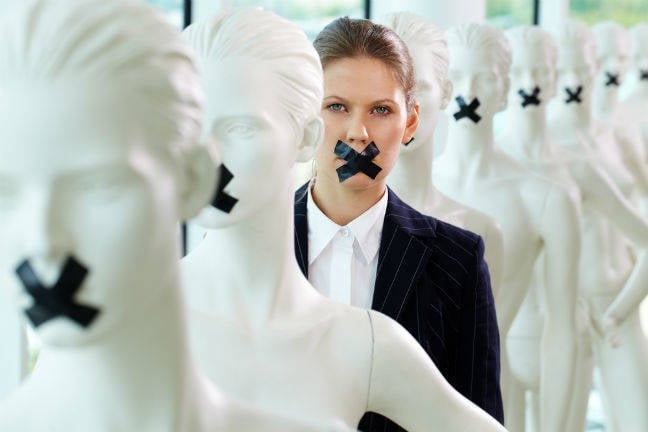- cross-posted to:
- technology@lemmy.world
- cross-posted to:
- technology@lemmy.world
Almost one in five men in IT explain why fewer females work in the profession by arguing that “women are naturally less well suited to tech roles than men.”
Feel free to check the calendar. No, we have not set the DeLorean for 1985. It is still 2023, yet anyone familiar with the industry over the last 30 years may feel a sense of déjà vu when reading the findings of a report by The Fawcett Society charity and telecoms biz Virgin Media O2.
The survey of nearly 1,500 workers in tech, those who have just left the industry, and women qualified in sciences, technology, or math, also found that a “tech bro” work culture of sexism forced more than 40 percent of women in the sector to think about leaving their role at least once a week.
Additionally, the study found 72 percent of women in tech have experienced at least one form of sexism at work. This includes being paid less than male colleagues (22 percent) and having their skills and abilities questioned (20 percent). Almost a third of women in tech highlighted a gender bias in recruitment, and 14 percent said they were made to feel uncomfortable because of their gender during the application process.



Removed by mod
Sexual assault is not the only kind of misogyny that could exist at a company. Also, no your anecdotal evidence is not equally as credible as a mass survey of women in the tech industry and women who have left it.
I have worked in tech for 10 years and until I started at my current company every single company I worked at I experienced and witnessed other women experience many kinds of hostile work environments and misogynistic discrimination. Differences in pay compared with male peers, dismissal of ability or ideas, people requesting to speak with male colleagues over me, sexual harassment in a few cases and even tolerance of casual sexual commentary on women in the work place.
This is commonplace. This is an article written by women saying that you aren’t noticing the ways that we experience discrimination in the industry. And your response is “I never notice this, so it musnt be real!”. Most women I know who go into tech leave eventually. It’s never because of the actual work itself. It’s almost always because of the attitudes of both their colleagues and often times customers and business partners. I’m very fortunate to be working IT for a women’s clothing company, and my boss and her boss are women and I’d say around 60% of my team are women myself included. I’ve yet to experience anything like I did at other companies.
Removed by mod
Your comments reek of “not-all-men” or “all-lives-matter” bullshit. You aren’t listening, much like many of the men in the tech sector. Is your gripe that they put their first statement in quotation marks? Take that up with the editor of the article, not random people on the internet.
“Additionally, the study found 72 percent of women in tech have experienced at least one form of sexism at work. This includes being paid less than male colleagues (22 percent) and having their skills and abilities questioned (20 percent). Almost a third of women in tech highlighted a gender bias in recruitment, and 14 percent said they were made to feel uncomfortable because of their gender during the application process.”
As the person above you said, there is more than one way to discriminate against women than straight up sexual assault (which also happens, by the way). Just because you specifically haven’t ever heard that one specific phrase uttered before your ears doesn’t mean that discrimination magically doesn’t exist.
Also, what are you getting on about with this crap about how “the fact article is written by woman means nothing, or at least it should mean nothing” (nice grammar, by the way)? Are you suggesting that men are somehow more capable than women when it comes to recognizing (and by extension highlighting) biases and discrimination around women themselves? You don’t actually think that, do you?
I heard it a few times, most notably from another woman working in tech. All of them older people though.
Removed by mod
Truth.